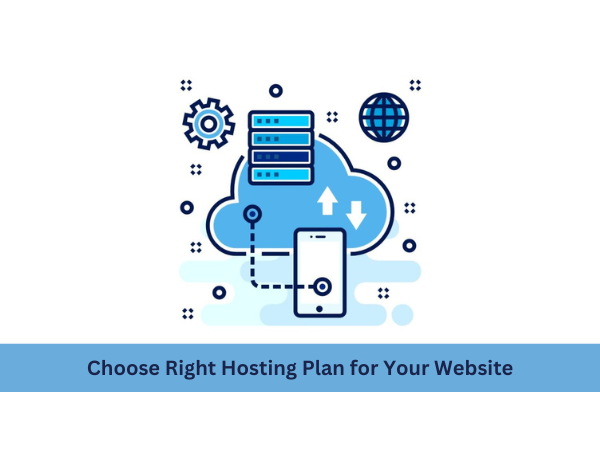Choose Right Hosting...
Choose Right Hosting Plan for Your Website

Choose Right Hosting Plan for Your Website
How to Choose the Right Hosting Plan for Your Website?
There are many factors to consider when choosing a hosting plan for your website. These include the size and scope of your site, the amount of traffic you expect, and your budget. In this article, we will explore the different types of hosting plans available and help you choose the right one for your website. We will also provide some tips on what to look for in a hosting provider.
Top Considerations To See Before Choosing Any Web Hosting Plan
If you’re planning to have a website, you will need a web hosting service to keep your site running. Not all web hosting services are created equal, however. There are many factors to consider before choosing a web hosting service for your website.
Reliability and Uptime
Another important consideration is reliability. You want to choose a web host that is reliable and offers uptime guarantees. Uptime is the amount of time that your website is online and accessible to visitors. Downtime is when your website is offline and unavailable. A good uptime guarantee is around 99%, which means that your website will only be offline for 1% of the time. This may seem like a small number, but if your website is offline even for a few minutes, it can have a big impact on your business.
SSL
Some web hosting providers offer free SSL as part of their plans to attract more clients to their service.
When we talk about web hosting SSL, we usually refer to SSL certificates. SSL certificates create encrypted connections and establish trust. This key padlock symbol pretends to the URL and inserts an ‘S’ for HTTPS.
SSL secures website transactions by encrypting all information in transit. This is especially important for any type of e-commerce site.
Speed
The speed of your web hosting provider is important for a number of reasons. First, it can impact the loading time of your website. If your site takes too long to load, visitors may get frustrated and leave before they even have a chance to see what you have to offer.
Second, the speed of your web host can impact your search engine ranking. Google and other search engines consider page speed when determining where to rank websites in their search results. So if you want your website to be visible in search results, you need to make sure it loads quickly for all.
Hosting Support and Backup
The type of support you need will depend on your level of technical expertise. If you’re a beginner, you’ll probably need more hand-holding than someone who is more experienced. But even if you’re a seasoned pro, you might still run into occasional problems that you need help with.
So before you choose a web host, take a look at the kind of support they offer and see if it matches your needs. Also, check out what kind of Support channels they have (e.g., phone, email, live chat, etc.) and see if they’re available 24/7.
Money Back Guarantee
When it comes to choosing a web hosting provider, one of the most important things to consider is whether or not they offer a money back guarantee.
Most providers will offer a 30-day money back guarantee, but some may offer longer or shorter periods. It’s important to read the fine print before signing up for any service to make sure you understand the terms of the guarantee.
Some companies may also require that you cancel within a certain time frame in order to receive a refund, so be sure to check that as well.
Pricing and Renewal
Before you select a web hosting provider, it’s important to understand pricing models and renewal terms. Some providers offer low introductory prices that increase when you renew your contract. Others have higher prices, but don’t increase at renewal.
To get the best value, look for a provider with a low introductory price that doesn’t increase at renewal. Also, be sure to read the fine print so you understand what you’re paying for and whether there are any hidden fees.
Bandwidth and Storage
When it comes to web hosting, two of the most important factors to consider are bandwidth and storage.
If you have a lot of large files, such as high-resolution images or videos, you’ll need more storage space. Some web hosts offer unlimited storage and bandwidth, while others have limits.
Be sure to check the terms of service before signing up for a web host to make sure that they don’t have any hidden fees or limits.
WordPress Hosting Plan – What is it and what are its benefits?
WordPress hosting is a type of web hosting designed specifically for WordPress websites. It typically includes features such as pre-installed WordPress, a custom management panel, and enhanced security.
Benefits of WordPress hosting include:
–Ease of use: WordPress hosting Plan is designed to be easy to use, with a custom control panel and one-click WordPress installation.
–Improved performance: WordPress hosting can improve the performance of your website by caching your pages and providing a dedicated server.
–Increased security: WordPress hosting comes with increased security features, such as automatic updates and malware scanning.
Conclusion
There are many factors to consider when choosing a hosting plan for your website. But by taking the time to understand your needs and doing some research, you can find the perfect hosting plan for your site. And once you’ve found it, you can enjoy all the benefits that come with having a well-hosted website.
